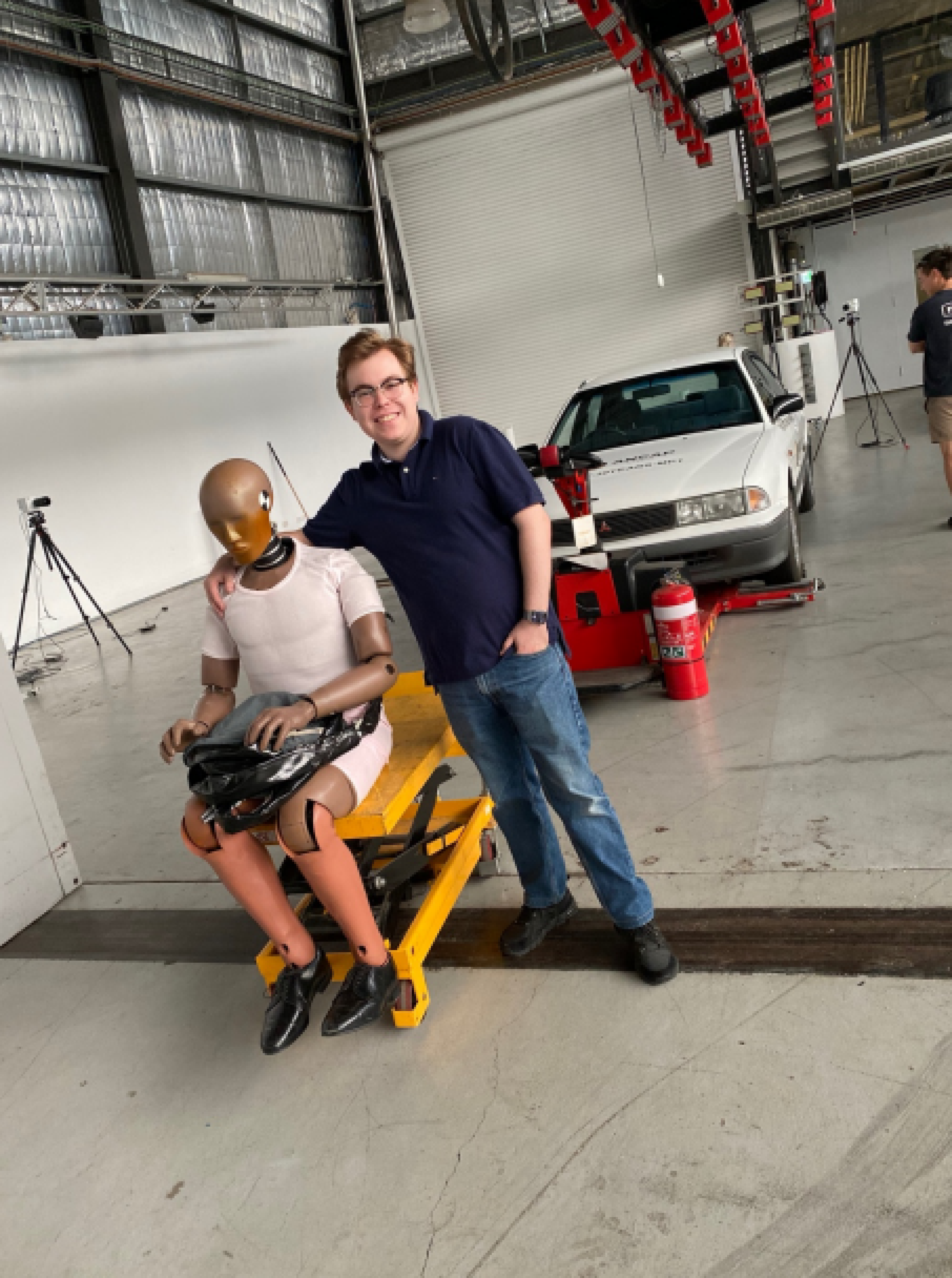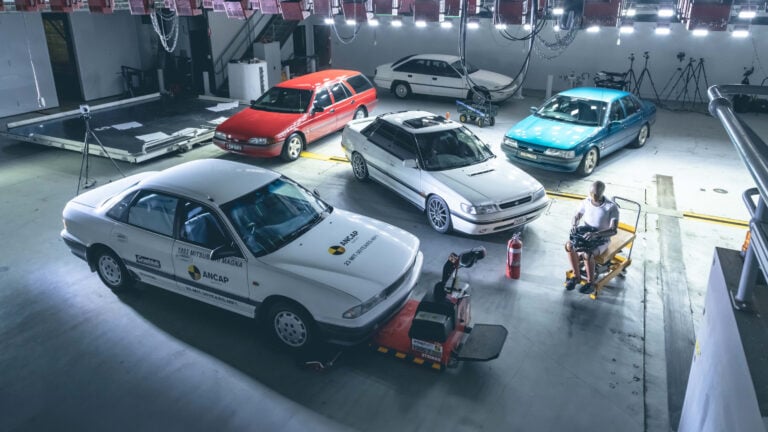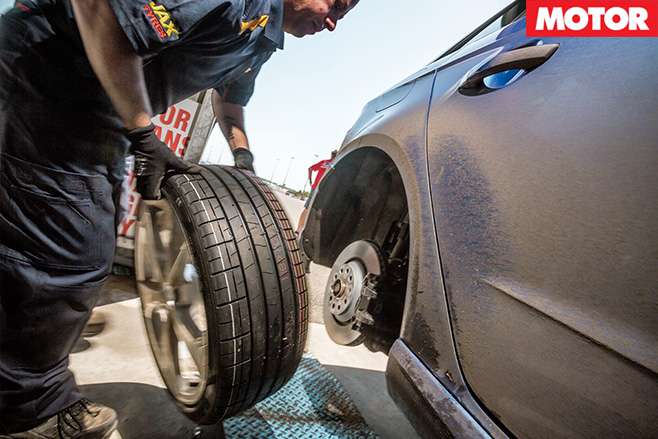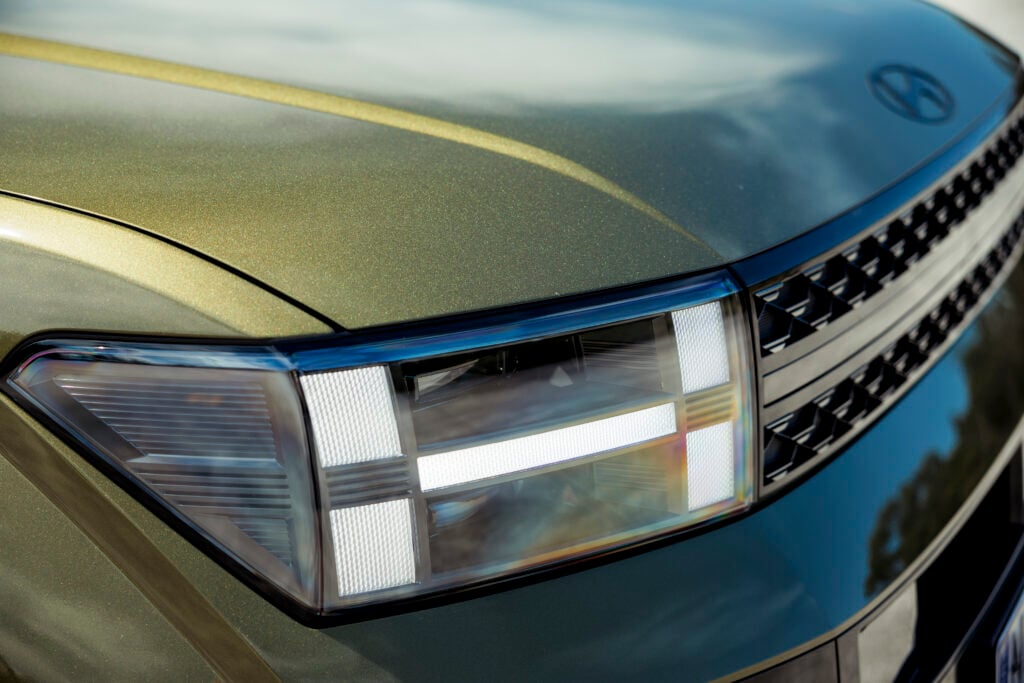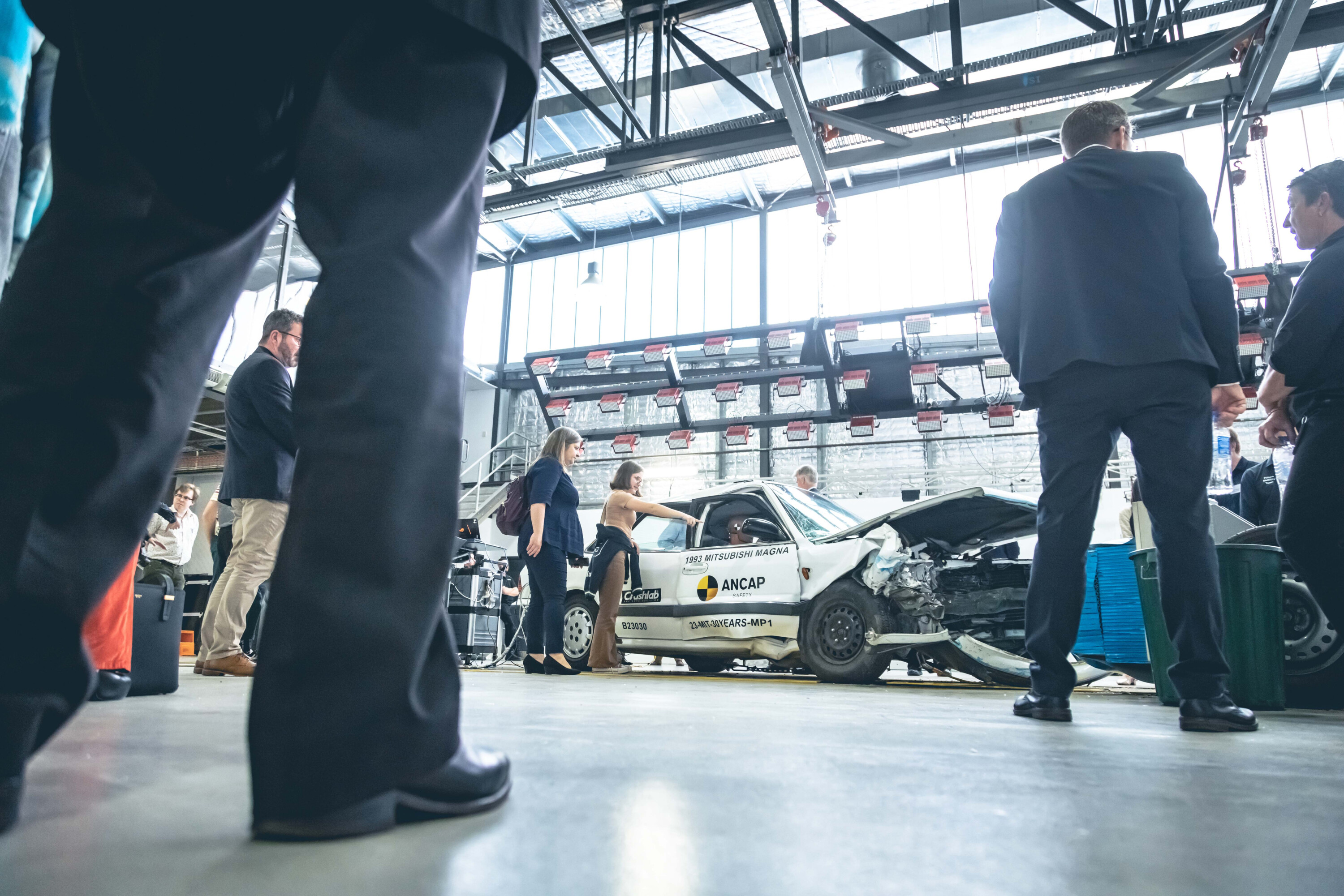
Wheels has summoned me
One weeknight, while partaking in the usual activity of aimlessly scrolling through my Facebook feed, a particular post caught my eye – “We’re on the hunt for a handful of old cars… Do you own one of these 1993 models?”
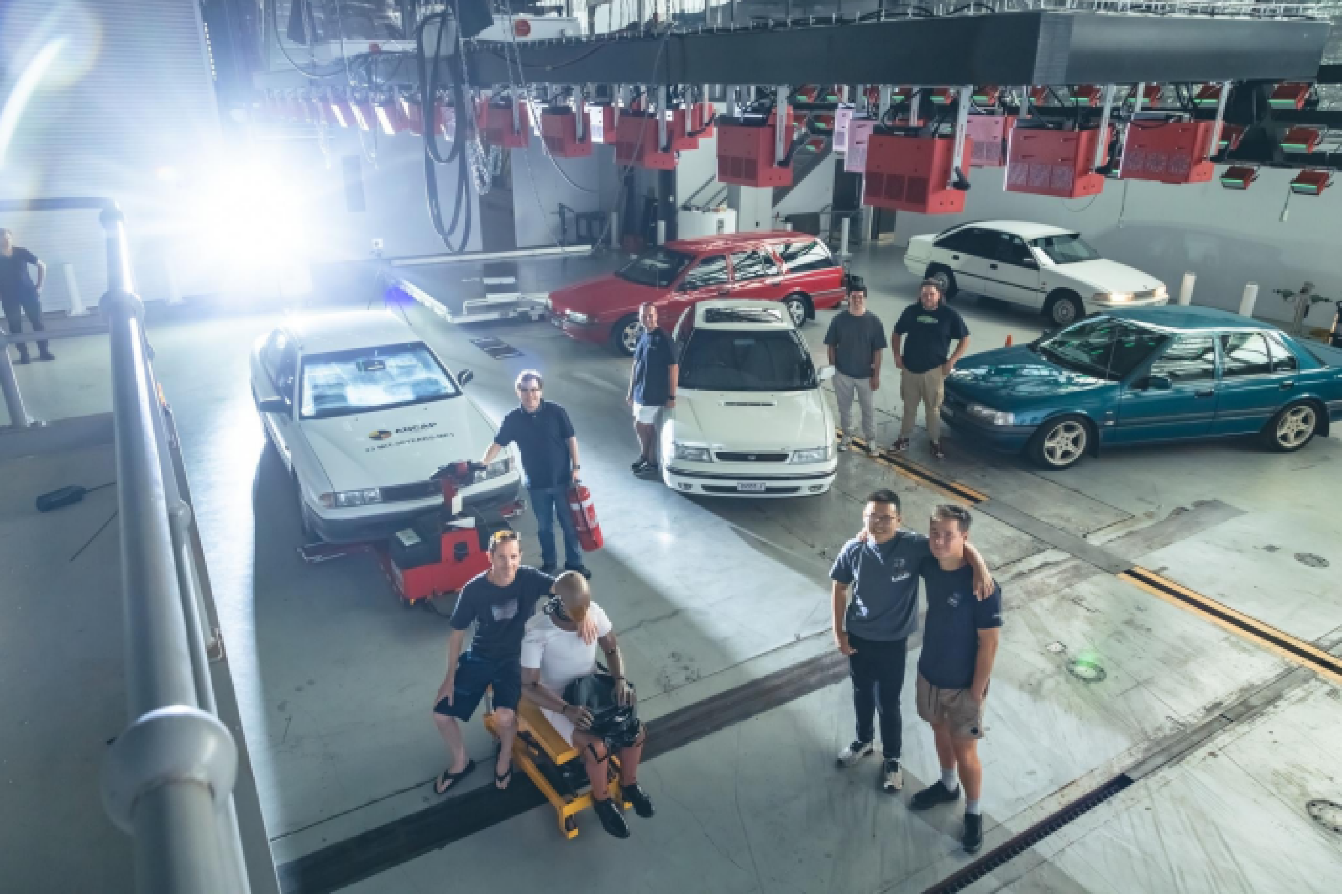
Among the models listed was the unmistakable image of a red EB II Falcon, resembling my trusty wagon.
ANCAP, the crash testing aficionados of Australia and NZ, via Wheels, were seeking a handful of vehicles for an upcoming photoshoot. Amazed that my Falcon had qualified for something, I scrambled together an email offering my honest daily driver.
Before too long, a polite reply arrived from Rhianne Robson, graciously inviting the wagon and myself to attend.
The arrogant belief that old cars are stronger is nothing short of rubbish
Mysterious and interesting, I thought. I accepted.
The day arrived… As I turned off the Great Western Highway to a set of obviously government facility style electric gates, with an ominous looking intercom, I could only wonder what was at the other end of this winding driveway.
As it turned out, it was Crashlab, the NSW Government’s $25 million crash testing playground, the largest of its type in the southern hemisphere.
Oddly enough, the building didn’t look as imposing as it sounds, softened by a carpark line-up straight out of 1993; a VP Commodore, a Subaru Liberty RS Turbo, and a fellow EB Falcon owner. My inner (unqualified) engineer was already fantasizing about the equipment and tools that lurked within.
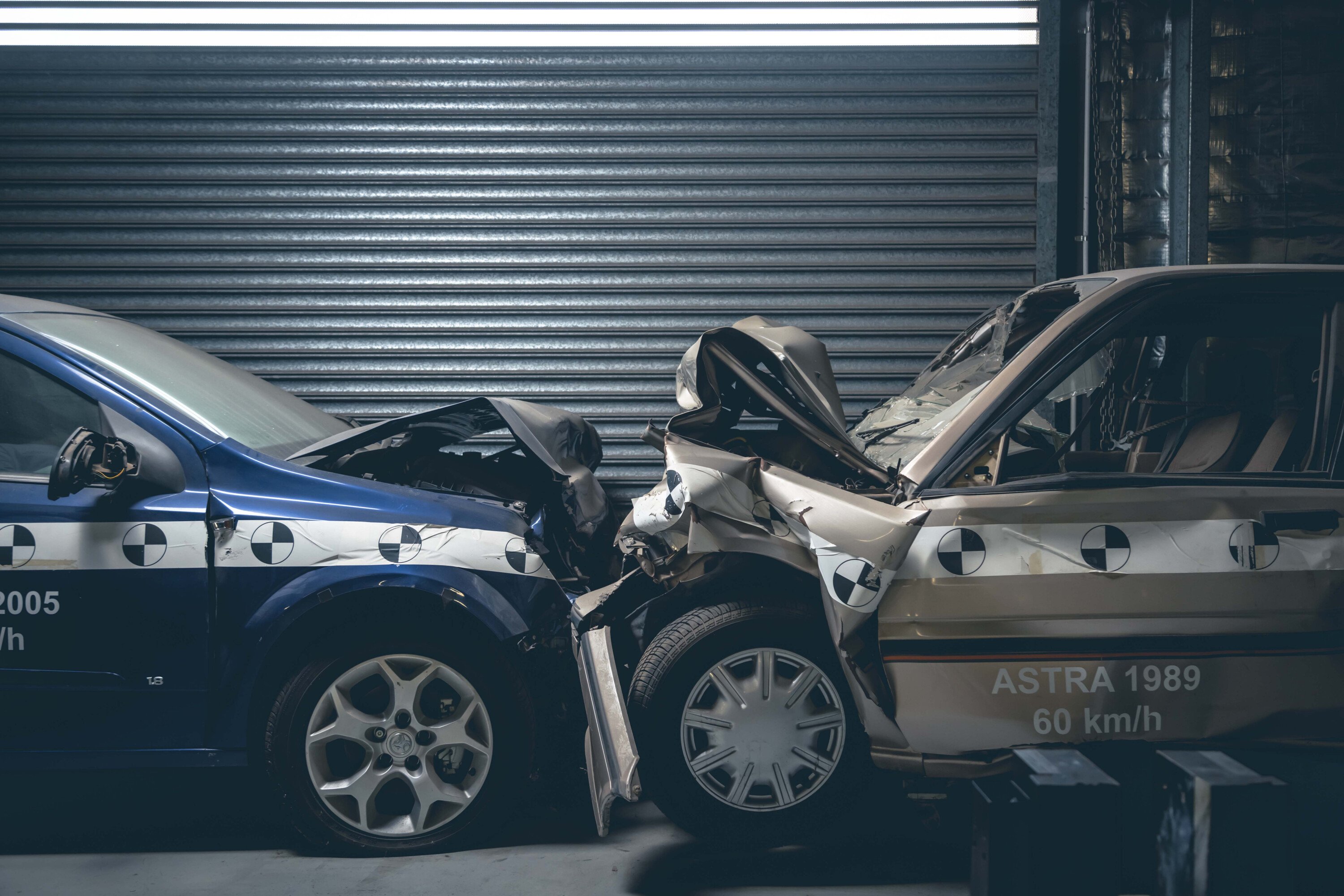
Soon enough, I met with the Crashlab and ANCAP teams, along with a variety of fellow crazy people (owners of the other cars requested for the photoshoot).
Then, the legendary John Law of Wheels, accompanied by the one and only photographic master, Thomas Wielecki (I have admired his work, such as his images of the late, great Paul Cockburn and his E-Type at Oran Park), directed us into the Crashlab “arena”, where all the action occurs, to shoot our cars in various revealing positions.
It was at this point that a 1993 TR Magna Executive – bearing immaculate blue cloth trim and a mere 58,000 kilometres on the clock – had been revealed as the crash test sacrifice for ANCAP’s 30th anniversary.
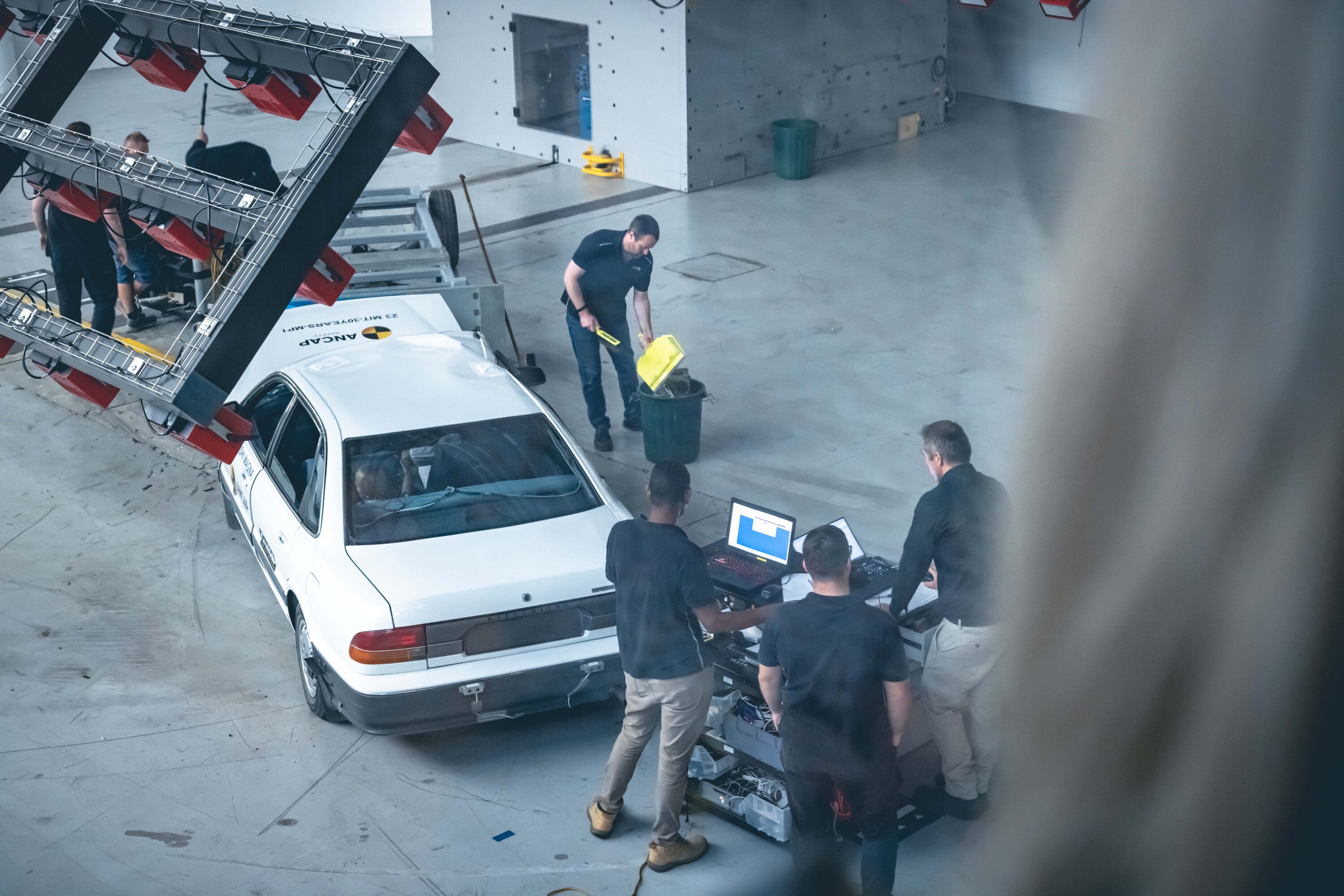
Touring the facilities
After completing the photoshoot, us old-car tragics were given a comprehensive tour of the Crashlab facilities. As a sufferer of Gear Acquisition Syndrome, this was a dangerous idea for me. (I too, have bad GAS – Stevo.)
It was here that we were shown a variety of equipment and different testing facilities, including a rig for testing motorcycle and bike helmets with a sickening metal spike, dropped from a reasonable height.
It was revealed that the modern THOR crash test dummies cost around $1.5 million per piece, depending on configuration and size. A few expletives were offered from the crowd after that bombshell, understandably. Animal dummies are also used, for testing pet restraints.
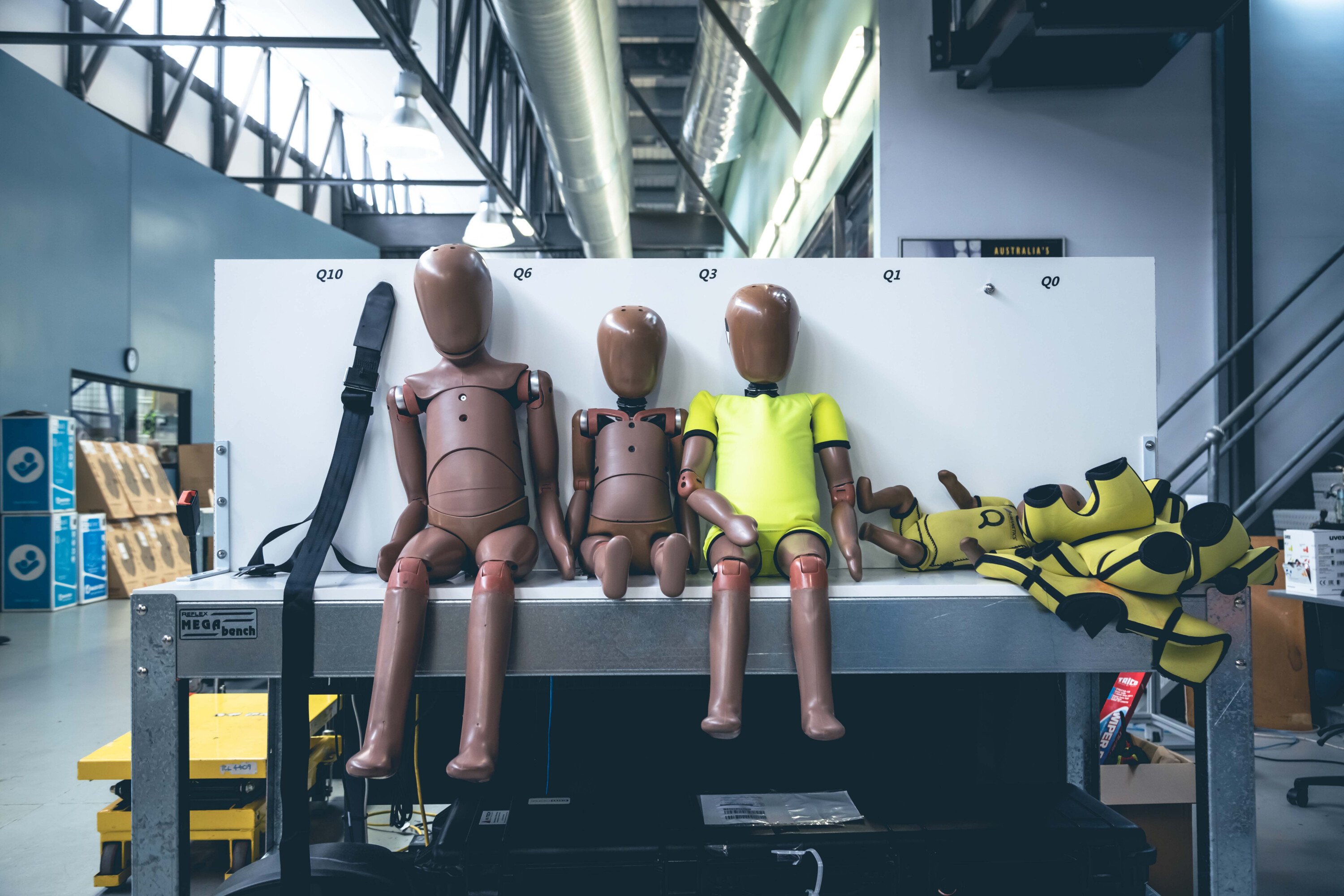
At the business end, a 1992-vintage electric motor originally designed for mining use is responsible for propelling the vehicles and appropriate vehicle dollies.
In a shed, a number of confronting examples were kept, including two Holden Astra hatchbacks, a 1989 and 2005 model, involved in a two-car head-on test, highlighting the pace of safety improvement since Crashlab’s opening.
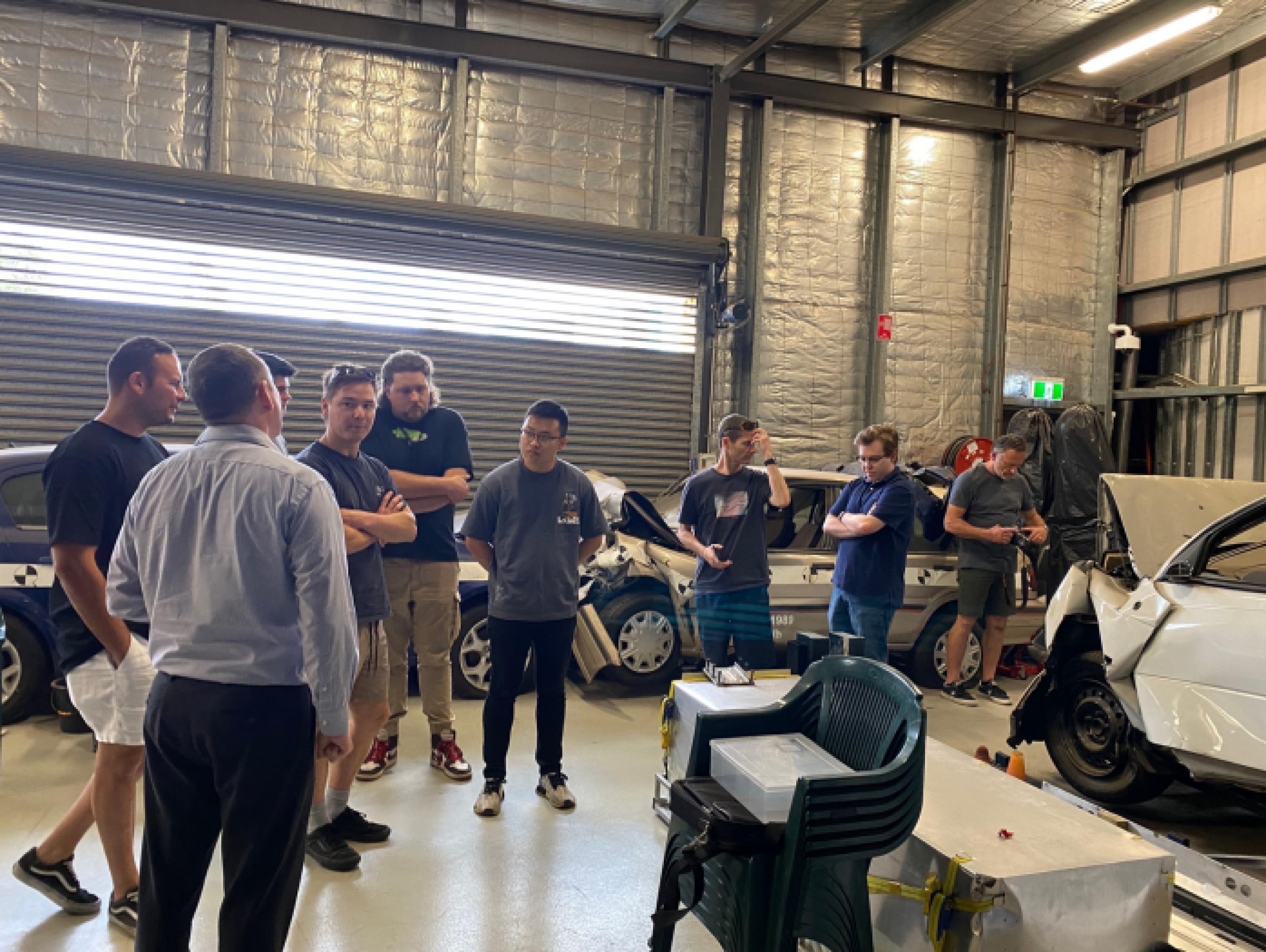
A room full of important people… and a farewell to the Magna
I had been invited back to Crashlab the following week to witness the Magna’s unlikely end, and to partake in the swift and efficient consumption of a delightful celebratory chocolate cake.
Here, I met and spoke with a range of industry professionals, such as Michiel Van Ratingen from Euro NCAP, who educated me on the bureaucratic red tape that ultimately delays the technology and implementation of dummies by roughly a decade.
Among so many knowledgeable individuals, I had expected to feel like the dunce in the room. Yet every person I met took the time to speak with me, teaching me about various aspects of their profession.
From a gantry above, the crowd huddles to watch the Magna meet its grisly end.
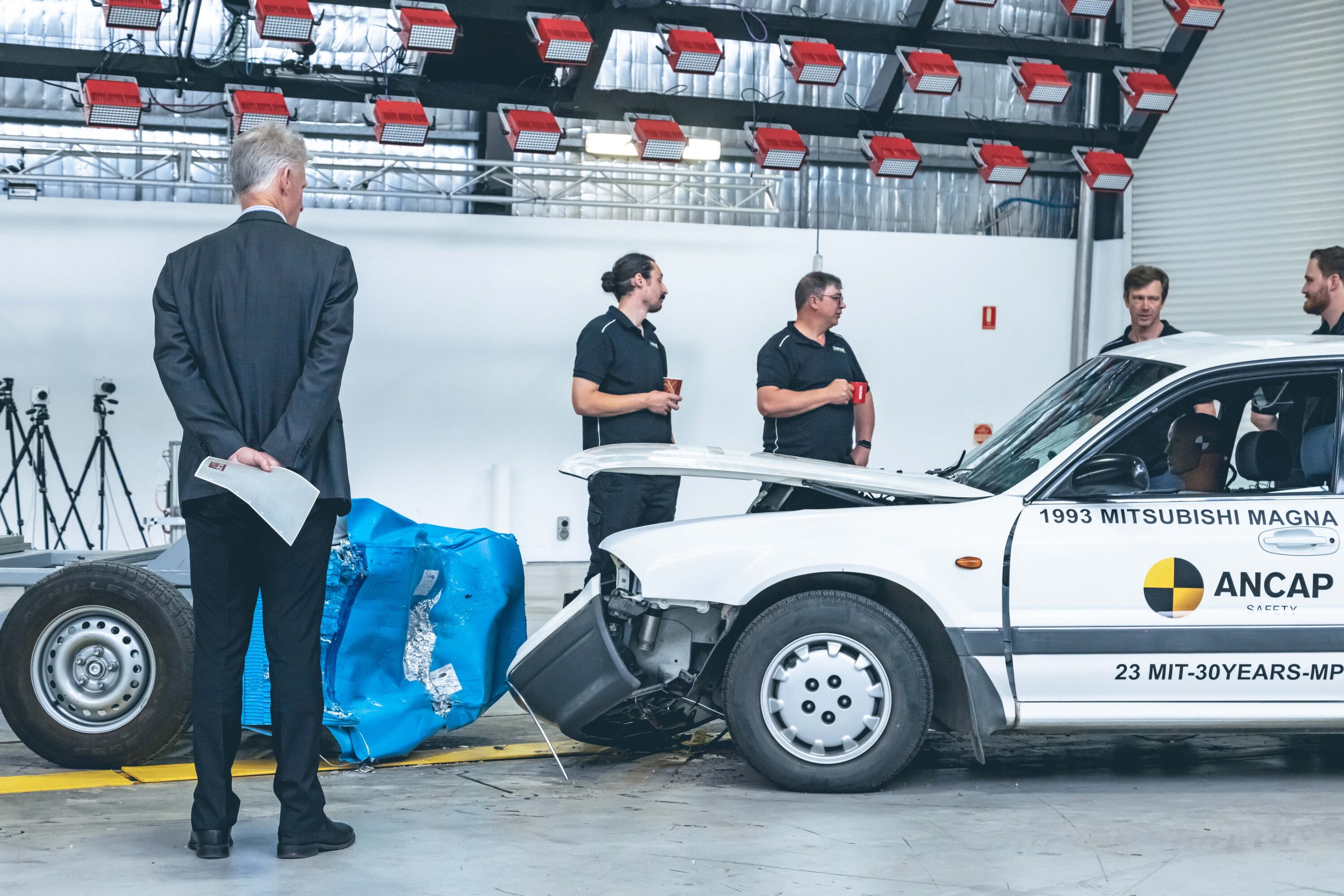
The occupants’ experience didn’t look so terrible in person, yet the slow-motion footage is shocking
Recorded by numerous high-speed cameras under a staggering array of LED lights rated at 100,000 lux (or anecdotally about as bright as the lightbar of a four-wheel drive tailgating you at 3 am) the old Magna collides with a dolly. A distinct and visceral “bang” follows; glass, plastic and stainless brightwork flying everywhere.
The occupants’ experience didn’t look so terrible in person, yet the slow-motion footage is shocking, revealing that the rear passenger’s knees had collided with the lower rear of the front seat, slipping below the seatbelt – a phenomenon known as ‘submarining’. The driver, amongst other injuries, sustained 107g of force to the head, essentially a certain demise.
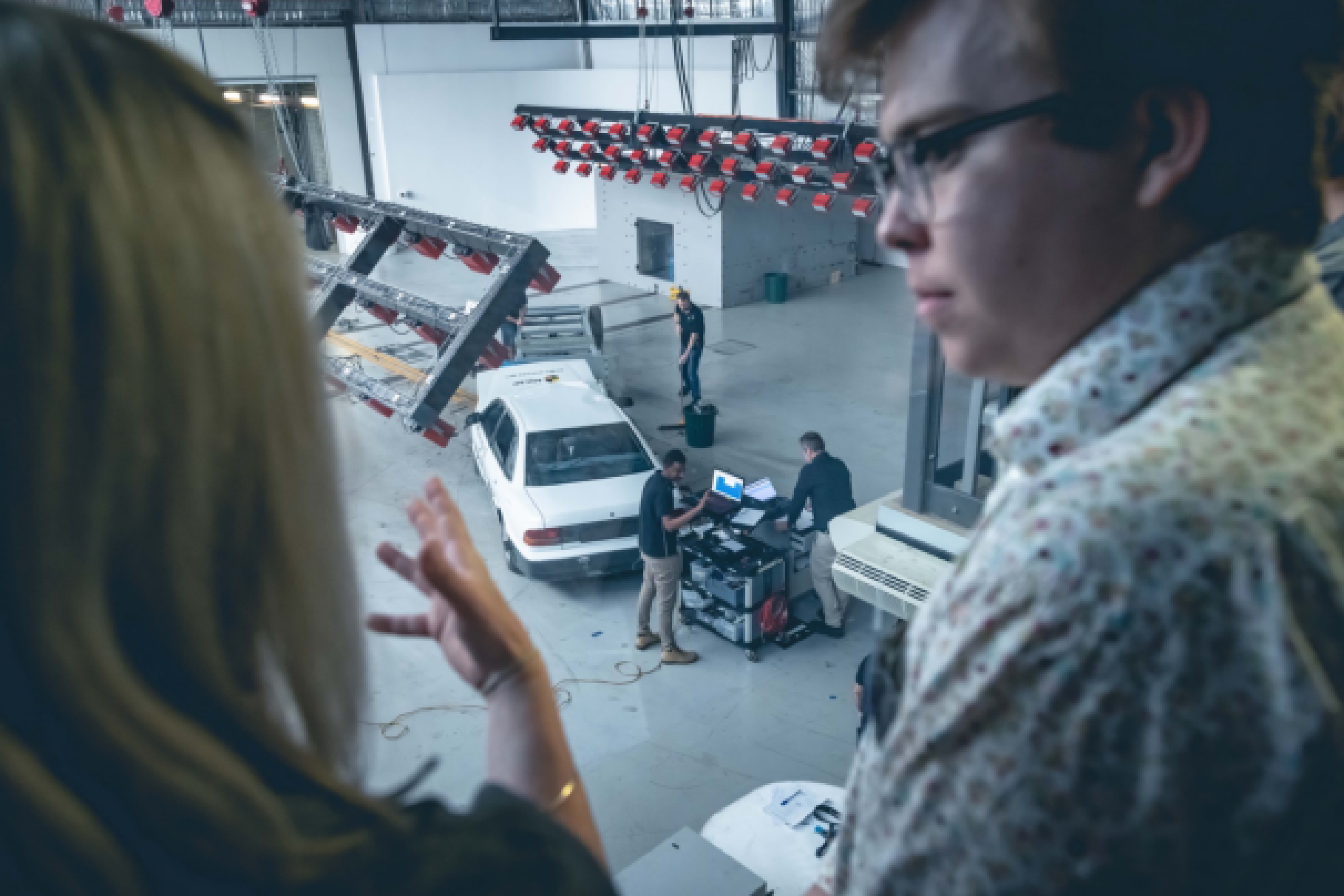
How does this make me feel?
As someone who daily drives a car from the same era as that TR Magna, witnessing this experience face-to-face could only remind me that I am driving a car that falls within the same risk factor and deficiency of safety compared to a modern car, which is virtually any traffic surrounding me whenever I drive.
This is a factor I remain aware of when driving an older car, a reason to employ defensive driving skills, to minimise as much risk as I’m able.
The arrogant belief that old cars are stronger is nothing short of rubbish. The entire point of a newer car is to deform and crumple to absorb the energy and force. In an older car, you are the conduit for that energy – and it does not end well. Dummies can be reset and rebuilt, but people cannot.
23-year-old Charlie is a regular Wheels reader and the owner of a beautiful old HiLux that has been in his family since new – a few years before he was born.
We thank Charlie for joining our team at Crashlab, and you’ll see his name here again.
